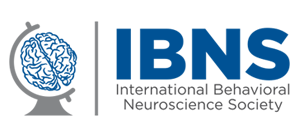IBNS is pleased to announce the first of our prestigious keynote speakers
|
 |
Michael Brecht, Ph.D. The Biology of Elephant Grasping |
Michael Brecht is Professor for Systems Neuroscience at Humboldt-University Berlin and Coordinator of the Bernstein Center for Computational Neuroscience Berlin. His major interest is to understand, how brain structure and activity relate to behavior. The recent research of the Brecht laboratory focused on social touch, kinship, play and elephants.
 |
Suzana Herculano-Houzel, Ph.D. Whatever Works: A New Framework for the Evolution |
Suzana Herculano-Houzel, Ph.D., is a biologist and neuroscientist at Vanderbilt University, where she is Associate Professor in the Departments of Psychology and Biological Sciences. Her research focuses on understanding the roots and consequences of brain diversity: what different brains are made of, what that matters in terms of cognition, energy cost, and longevity, and how the human brain is remarkable, but not special, in its makeup. A major lesson learned from her work is that brains are not optimized machines, “perfected” through evolution; to her, the multiple ways how brains of birds, primates, and all other sorts of mammals tiny and large are put together are evidence that evolution is not “improvement by adaptation through natural selection”, but rather “ever-increasing diversity through whatever works”. She spoke at TEDGlobal 2013 and TEDxNashville 2018 and is an avid communicator of science to the general public.
 |
Bita Moghaddam, Ph.D. Rule of Three: Three new conceptual approaches to
|
Bita Moghaddam is currently the Ruth Matarazzo Professor of Behavioral Neuroscience and Professor of Psychiatry at Oregon Health and Science University in Portland, Oregon. Her research focuses on understanding the neuronal basis of complex behaviors that are critical to mental health, and is distinguished by the substantial impact on the field (H-index 80). Her work contributed to the discovery of the first non-monoamine targeting compound targeting metabotropic glutamate receptors for treatment of schizophrenia and potential mechanisms to explain the antidepressant effects of ketamine. Her research has been funded continuously since 1991, including a MERIT award from the National Institute of Mental Health.
 |
Sheena Josselyn, Ph.D. Making memories in mice |
Sheena Josselyn is a Senior Scientist at The Hospital for Sick Children (SickKids) and a Professor in the departments of Psychology and Physiology at the University of Toronto in Canada. She holds a Canada Research Chair in Brain Mechanisms underlying Memory, and is a Fellow of the Royal Society of Canada. Her undergraduate degrees in Psychology and Life Sciences and a Masters degree in Clinical Psychology were granted by Queen’s University in Kingston (Canada). Sheena received a PhD in Neuroscience/Psychology from the University of Toronto with Dr. Franco Vaccarino as her supervisor. She conducted post-doctoral work with Dr. Mike Davis (Yale University) and Dr. Alcino Silva (UCLA). Dr. Josselyn received numerous awards, including the Innovations in Psychopharmacology Award from the Canadian College of Neuropsychopharmacology (CCNP), the Effron Award from the American College of Neuropsychopharmacology (ACNP), the Hughlings Jackson Award from McGill University and the Andrew Carnegie Prize in Mind and Brain Sciences. Dr. Josselyn is interested in understanding how the brain encodes, stores and uses information. Her primary model organism is mice. However, several human disorders (ranging from autism spectrum disorder to Alzheimer’s disease) may stem from disrupted information processing. Therefore, this basic knowledge in mice is not only critical for understanding normal brain function, but also vital for the development of new treatment strategies for these disorders.
Be sure to check back... more to come!

